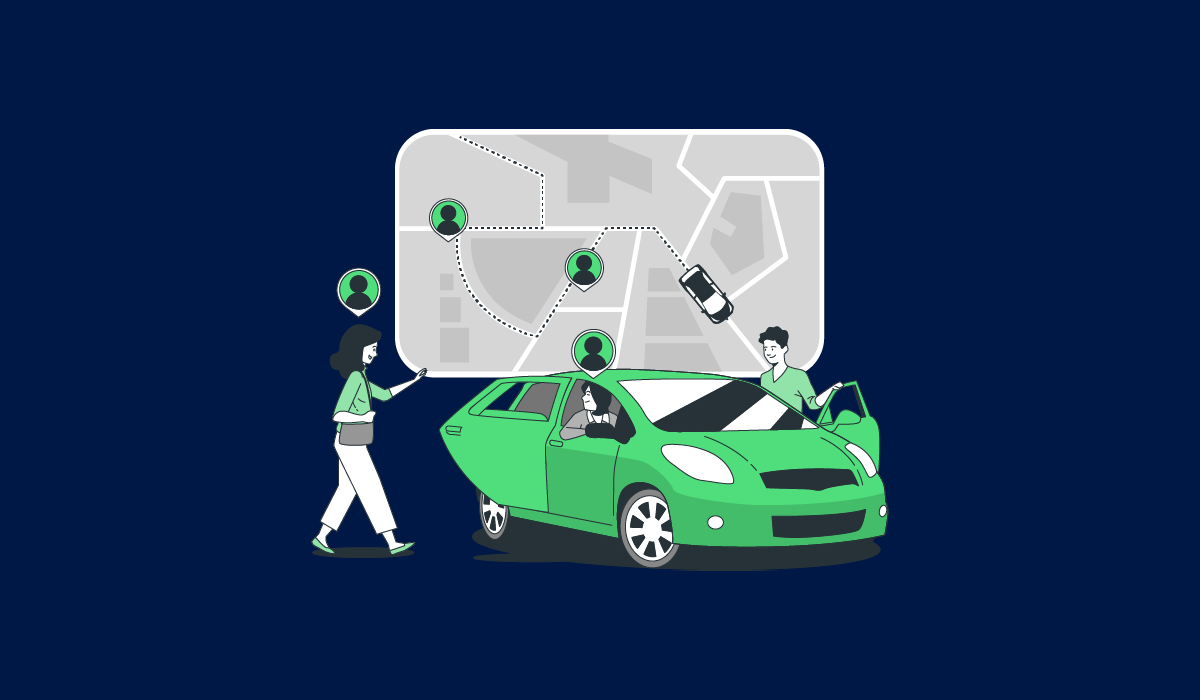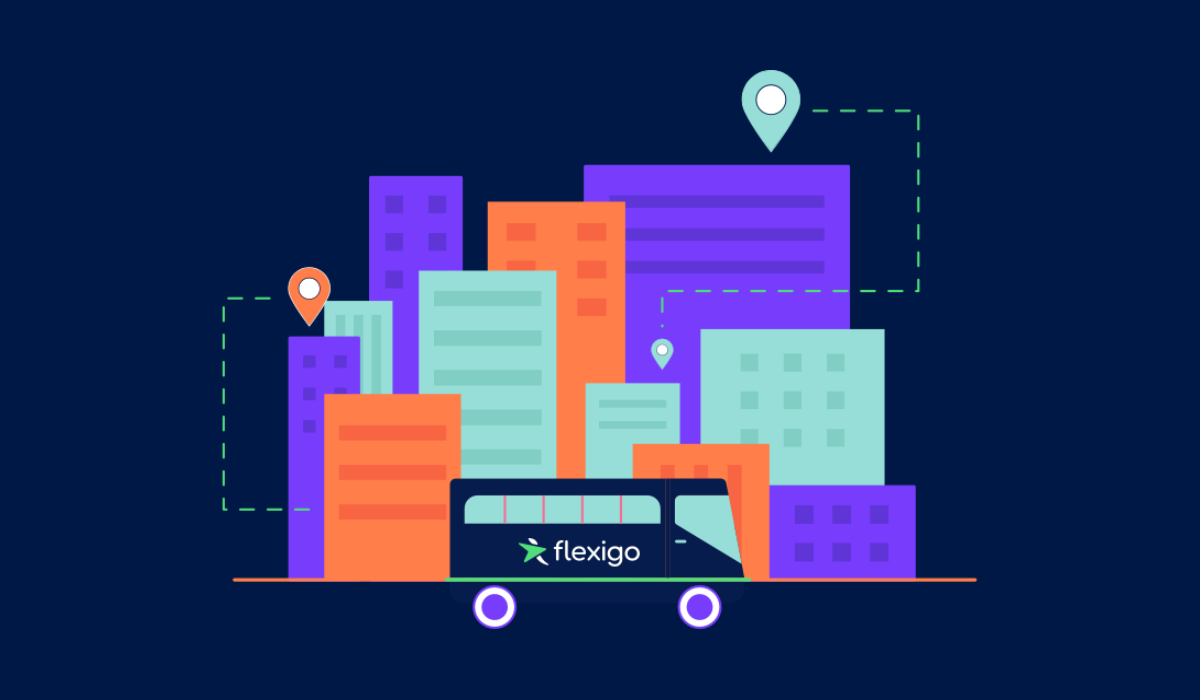As the world faces increasing environmental challenges, the importance of sustainable transportation solutions has never been more critical…or beneficial. Transportation Demand Management (TDM) programs are at the forefront of this movement, offering innovative mobility solutions that not only support sustainability but also improve air quality and safety outcomes in communities. By integrating flexible transportation options such as fixed route and demand-responsive dynamic shuttles, on-demand shuttles, vanpools, and carpools alongside traditional public transit, walking, and biking programs, TDM programs create a multifaceted approach to modern transportation needs. In this week’s flexiBlog, I’ll highlight some of the most important impacts of these programs, and how we approach making these programs available to as many people as possible in order to maximize those benefits.
Environment
- Sustainability and Air Quality
The best TDM programs contribute significantly to environmental sustainability by reducing the number of single-occupancy vehicles on the road. This reduction in vehicle miles traveled (VMT) directly translates to lower greenhouse gas (GHG) emissions, which are a major contributor to urban air pollution. For instance, dynamic shuttles and vanpools efficiently consolidate multiple passengers into fewer vehicles, decreasing overall fuel consumption and emissions.
Beyond air quality, these programs also positively impact water quality. Reduced traffic means fewer pollutants, such as oil and heavy metals, are deposited on road surfaces, subsequently decreasing the runoff into waterways during rain events. This mitigates the risk of water pollution and protects aquatic ecosystems.
Safety
TDM programs enhance community safety by alleviating traffic congestion, which reduces the likelihood of accidents. The implementation of fixed routes and dynamic shuttles ensures that transportation is more predictable and orderly, minimizing the chaos often associated with urban commuting. Additionally, promoting walking and biking not only fosters healthier lifestyles but also creates a more pedestrian-friendly urban environment, encouraging safer interactions between different modes of transport.
The mental health benefits of reduced commuting stress are substantial. By providing reliable and efficient transportation options, employees experience less stress and fatigue, contributing to better overall well-being and productivity. On-demand shuttles and flexible mobility solutions ensure that employees have dependable ways to commute, which significantly lowers daily stress levels.
Innovation
- Diverse Mobility Solutions
- Fixed Route and Demand-Responsive Dynamic Shuttles: These shuttles offer scheduled and flexible routing options, adapting to real-time demand and optimizing routes for efficiency.
- On-Demand Shuttles: Allowing employees to request rides as needed, these shuttles provide the convenience of private transport with the efficiency of shared rides.
- Vanpools and Carpools: These programs facilitate shared commuting among employees, reducing the number of vehicles on the road and fostering community among coworkers.
- Traditional Public Transit, Walking, and Biking Programs: Encouraging the use of public transportation and active commuting methods like walking and biking further reduces environmental impact and promotes healthier lifestyles.
Technological advancements have revolutionized TDM programs, making them more effective and user-friendly. Apps and platforms for real-time route planning, ride-hailing, and carpool coordination have made accessing these services easier than ever before. For example, GPS and data analytics enable dynamic route adjustments, ensuring optimal efficiency and minimal wait times. Additionally, holistic reporting tools provide valuable insights into the impact of these programs, allowing organizations to continuously improve their offerings.
Comprehensive Impact of TDM Strategies
The breadth and magnitude of TDM strategies' impact on both the environment and the community are profound. By reducing VMT, these programs cut down on GHG emissions, improving air quality and contributing to a healthier planet. Safer streets and lower stress levels enhance the quality of life for community members, while democratized access to work ensures that transportation is not a barrier to employment.
Why flexigo Stands Out
For organizations seeking to maximize their positive environmental and community impact, flexigo is the ideal platform. It offers the most complete and reliable set of TDM technologies on the market, including commute analysis and planning tools; fixed route shuttles, demand-responsive dynamic shuttles, loop shuttles, on-demand shuttles; vanpool and carpool coordination, routing, auditing, and reporting; closed-loop carshare and rideshare; holistic reporting; and fractional access to services shared with other employers.
Ease of Use and Efficiency
Of course, no benefits can be realized if the services aren’t used. That’s why flexigo's platform is designed to be user-friendly for both employees and administrators. Its intuitive interface ensures that users can easily access and navigate the various mobility services, while the robust backend allows organizations to efficiently design, implement, and manage their TDM programs. Once implemented, flexigo enhances the variety and quality of mobility services available, saves money, boosts employee engagement, improves safety, and reduces overall GHG emissions.
flexigo not only meets - but exceeds - the demands of modern TDM programs, making it the best choice for any organization committed to sustainability and community well-being. By integrating flexigo's comprehensive and customizable solutions, businesses, schools, and municipalities can achieve significant environmental benefits and foster safer, more engaged communities.
By Dave Gallon - Managing Director US, flexigo

.png?width=200&name=logo%20(1).png)











